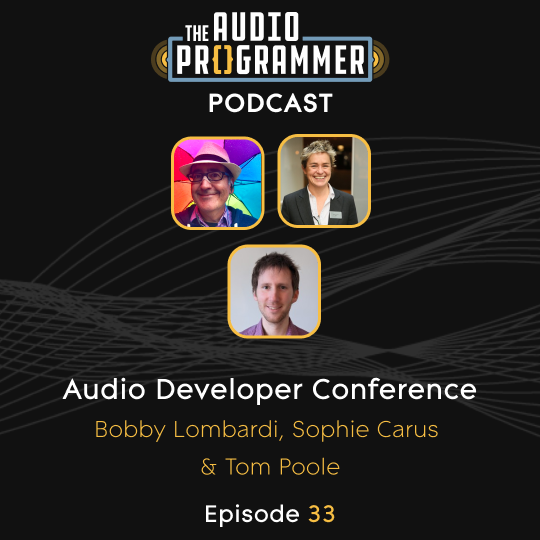Podcast
Creating the Present and Future of Audio Programming w/ Jules Storer and Cesare Ferrari (Cmajor) | Ep 28
Jules Storer and Cesare Ferrari discuss how Cmajor is modernizing audio plugin development and making it easier for developers to build cross-platform instruments.
In this episode, audio programming legends Jules Storer and Cesare Ferrari return to discuss their groundbreaking work with Cmajor, a modern DSP language designed to revolutionize how developers create audio plugins. The conversation explores their early days in the industry, from Jules's journey writing Tracktion as an escape from a boring radio job in the late 1990s to the evolution of tools like JUCE that shaped the audio development landscape.
The heart of the discussion focuses on why Cmajor exists: to free developers from the constraints of legacy C++ frameworks and enable true cross-platform deployment, including browsers. Rather than inventing new types of sounds or radically changing user interfaces, Storer and Ferrari are solving a different problem: making it dramatically easier to build, deploy, and maintain audio software across multiple platforms, plugin formats, and future architectures. They envision a world where indie developers don't need to rebuild their entire plugin catalog every time a new platform emerges, where the runtime handles platform support automatically, much like web developers write once and deploy everywhere.
The conversation also touches on the challenges facing modern plugin developers, from the overwhelming complexity of tooling and the difficulty of marketing in a saturated market to the need for developers to find their unique voice rather than creating another generic compressor clone. Storer and Ferrari share their insights on moving from C++ to JavaScript for UI development, the potential of AI-assisted plugin creation, and their recent work bringing Native Instruments' Pro 53 back to life using Cmajor. Their vision is clear: create tools that let developers focus on the creative aspects of audio programming rather than wrestling with build systems, platform compatibility, and deployment headaches.
Originally recorded on Aug 26, 2024.






